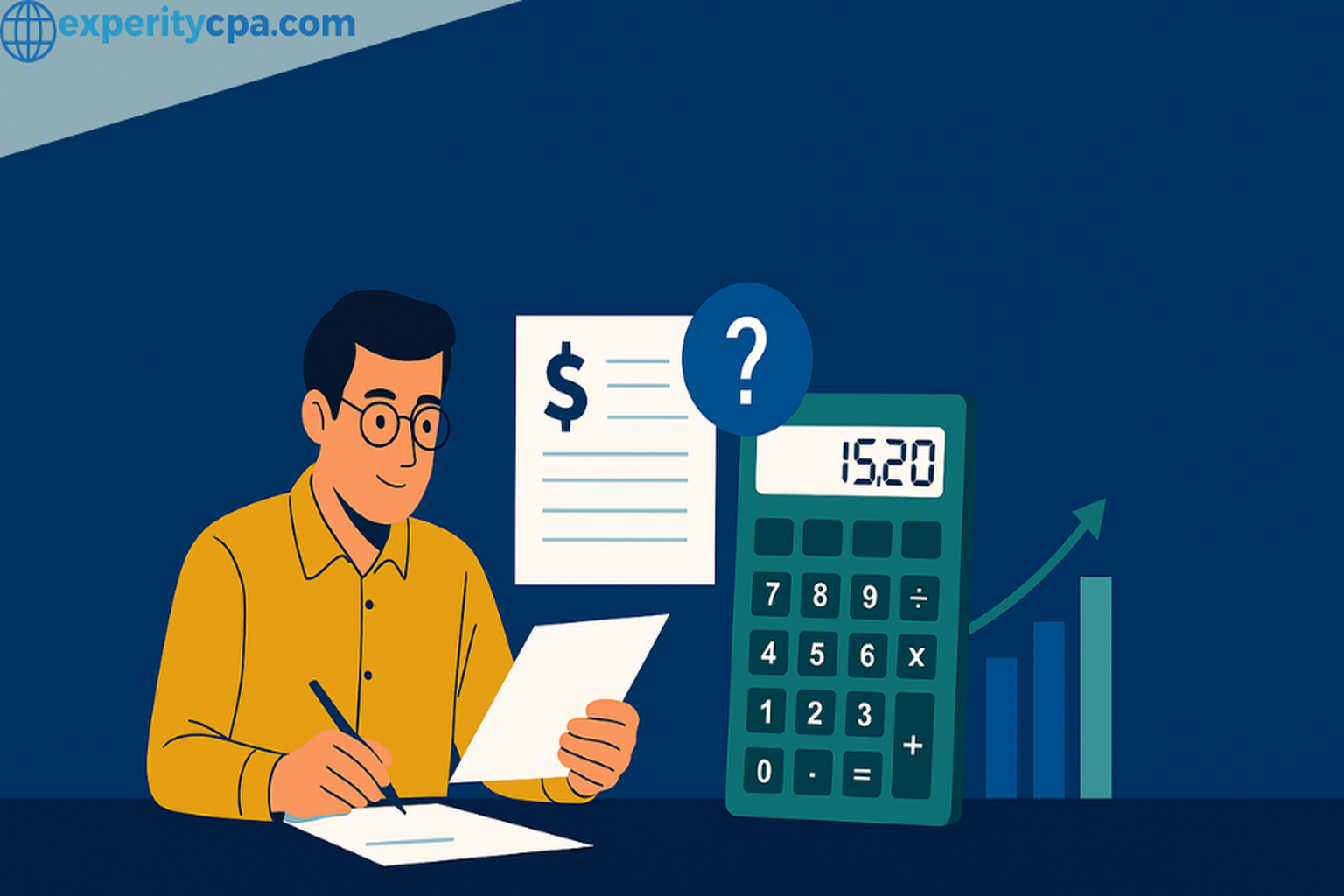
Website Powered by Bailey's Assets

When it comes to managing your finances, the right questions can lead to better decisions, optimized savings, and greater financial clarity. This is especially true for detail-oriented individuals who want to ensure every number, strategy, and line item is aligned with long-term goals.
Whether you are a small business owner, high-net-worth individual, or simply someone who cares deeply about financial precision, partnering with the right tax and accounting firm is critical. Before hiring or meeting with your accountant, arm yourself with the most insightful questions to make the most of their expertise.
But first, let’s take a look at a firm that exemplifies excellence in accounting and tax services—ExperityCPA.
At ExperityCPA, financial guidance goes far beyond tax season. With a team composed of CPAs, Enrolled Agents, and financial professionals, ExperityCPA is redefining what it means to offer full-service tax accounting services.
Founded with a mission to eliminate financial friction for business owners and individuals, the firm provides highly strategic tax advisory services, proactive planning, and year-round support. Clients benefit from real-time insights, automation, and expert advice that helps them save more and grow faster. Whether you need accounting services for small business, personal tax planning, or ongoing financial guidance, ExperityCPA delivers it all with exceptional transparency and dedication.
Now that you know who’s in your corner, let’s dive into the seven most essential questions that every detail-oriented client should ask their accountant.
If you’re not proactively asking this question, you might be overpaying the IRS every year.
A skilled CPA tax advisor can help you leverage deductions, credits, deferrals, and income-shifting strategies to reduce your overall tax burden. For example, they may recommend:
The key here is not just compliance but optimization. When you work with a forward-thinking tax advisor near me, they should not only help you file your return but design a long-term tax strategy that aligns with your goals.
If you're running a business—or even just a growing side hustle—the structure you choose (LLC, S-Corp, C-Corp, etc.) can significantly impact your taxes, liability, and profitability.
Your accountant should guide you based on factors like:
Choosing the wrong entity type can result in paying self-employment taxes unnecessarily or missing out on valuable deductions. Firms like ExperityCPA provide expert tax advisory services to help clients select or transition to the most tax-efficient structure.
A detail-oriented person values organization. Having a smart, automated system for bookkeeping, invoicing, and tax tracking is essential—especially if you operate a business.
Ask your accountant:
Accounting services for small business should always include system optimization and education. At ExperityCPA, clients benefit from tech-forward solutions that save time and reduce manual errors—making tax time less stressful and more predictable.
Tax codes are filled with opportunities—if you know where to look. Unfortunately, many taxpayers and business owners miss out on significant savings simply because they don't ask the right questions.
A high-quality tax and accounting firm will help identify:
This is where having a proactive accountant really pays off. A qualified CPA tax advisor doesn’t wait until April to discuss tax breaks—they plan for them all year long.
Detail-oriented individuals think beyond the current year. Whether you’re buying property, selling a business, or making investments, every decision you make can affect your tax picture for years to come.
Your accountant should walk you through:
With proper guidance from a firm like ExperityCPA, you’ll avoid surprises and build a more tax-efficient financial legacy. Their approach to tax accounting services includes deep scenario analysis so you’re always a step ahead.
In an increasingly complex regulatory environment, compliance is not optional—it’s essential.
Ask your accountant:
For small business owners especially, non-compliance can lead to costly penalties. ExperityCPA provides comprehensive accounting services for small business, ensuring clients stay in good standing with all tax authorities. Their detail-oriented process and documentation support provide added peace of mind.
If you’re paying an accountant just to crunch numbers, you’re not getting full value. A great advisor helps you interpret the numbers and make smarter decisions.
Ask for regular updates on:
ExperityCPA’s data-driven approach to accounting and tax services means clients are empowered with real-time dashboards and customized KPIs. Whether you’re building a business or managing personal wealth, they ensure your financial data works for you—not the other way around.
Asking these seven questions not only helps you maximize your accountant’s value but also keeps you in control of your financial future. Whether your focus is growth, compliance, savings, or strategic decision-making, the right tax advisor makes all the difference.
If you're searching for a tax advisor near me who delivers proactive, intelligent, and tech-savvy service, look no further than ExperityCPA. With a focus on high-performance financial support, they offer the kind of accounting and tax services that detail-oriented individuals and businesses deserve.
Take the first step toward smarter financial management today. Reach out to ExperityCPA to explore how their team can help you optimize your tax position, streamline your accounting, and gain real peace of mind.